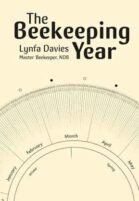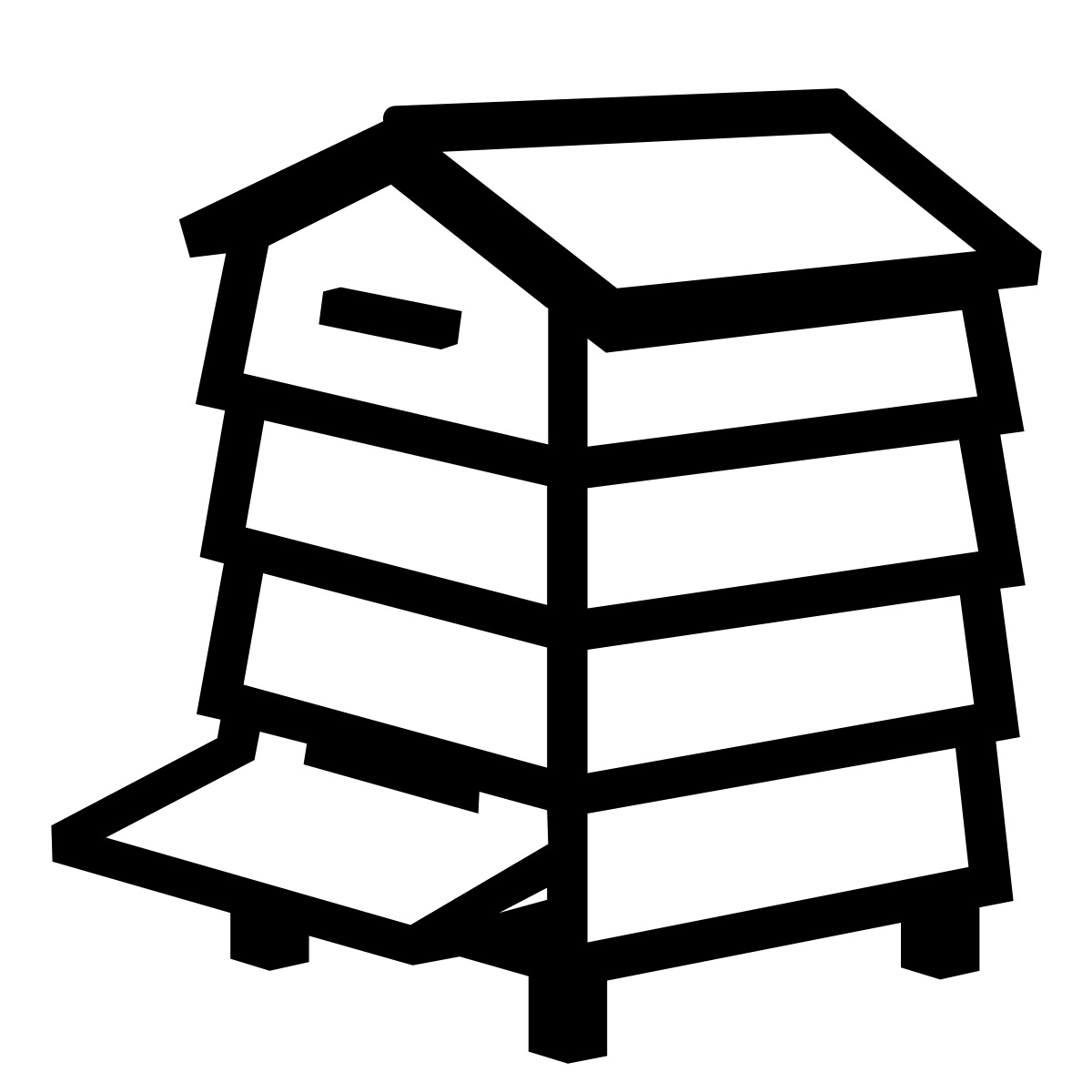
Introduction.
It’s been a busy season with the media covering stories of swarms on tennis courts, bushes, and inside houses. New beekeepers are attracted to the craft, and some are getting started before they have had any training or experience. How best to help them? Local beekeeping associations are the first obvious sources of local knowledge and information, but there are plenty of books to support learning. The one I recently reviewed is the best by far of any I can think of when it comes to understanding what goes on in a beekeeping year. This is also a good book for someone who might want to keep bees but is not sure what work is involved over the year.
Review.
Title: The Beekeeping Year
Author: Lynfa Davies
Publisher: Northern Bee Books
Published: 2024
ISBN: 978-1-914934-79-7
Paperback; pages: 63
Cost: £9:95
Available: Northern Bee Books
Lynfa Davies has written The Beekeeping Year for new beekeepers. Growing up on a farm and following a career embedded in agriculture, places the author in an ideal position to write about honey bees from the caring perspective of animal welfare. The significant opening sentence in the introduction sets the scene for what this book aims to achieve; supporting new beekeepers to care for honey bees well, and keep them healthy. “While for the most part, bees are very good at looking after themselves, their welfare and productivity will be a direct result of your actions”. Indeed, all beekeepers should heed this advice.
There are twelve short chapters guiding the beekeeper through the year month by month as the story unfolds. It is well written in a friendly, non-prescriptive way, and speaks directly to the reader as a mentor might. It is filled with subtle humour which adds warmth to this book.
The reader can be confident that all the advice and information is research-based and credible. Davies is a master beekeeper and one of the few holders of the National Diploma in Beekeeping. She currently works for Menter a Busnes, and has developed an online beekeeping course which she manages alongside other work. In addition, Davies runs 30 locally adapted colonies for honey production and rears her own queens.
There is just the right amount of information for a new beekeeper to take in without feeling overwhelmed by new material. For the reader who wants more in-depth details they are sign-posted to all the relevant resources. Varroa is every beekeeper’s biggest challenge and it receives proportional attention. We learn that broodless periods are earlier than we might think, so, winter treatments are best given in early December. Contrary to beekeeper intuition, it doesn’t harm a colony to open the hive and scrape open any brood cells before treatment.
There are many clear photographs and diagrams to support descriptions of management strategies etc. One picture shows an ingenious homemade wasp deterrent that anyone can make, but you must read the book to find out how to. The font is large, clear, eye-pleasing, and printed on good quality paper.
Unlike many beekeeping books that promulgate the illusion that queen rearing is so complicated it needs much experience, Davies encourages new beekeepers to consider raising queens from the start, and makes it sound as ordinary as cracking eggs to make an omelette.
The Beekeeping Year achieves its goal and is unlikely to spend much time on the bookshelf. I will be buying a copy for all my friends who take up beekeeping, and I expect that every beekeeping association will recommend it to their beginners, and keep a copy in the library.

I will now be able to recommend a good book to people who are thinking of taking up bee keeping as I know it’s been reviewed by you thank you!
Oh thank you, Susan. That’s good to know.
Thank you for your book recommendations. I’ve ordered the Lynfa Davies and have found ‘Beekeeping for Gardeners’ by Richard Rickett to be brilliantly useful….
That is super Margaret. Good to know and I hope your beekeeping season is going well over there.
Thanks for doing the hard part and reading this book, I’m looking forward to ordering a few copies now that I know. Thank you Ann.
Hello Rick, thank you for commenting and using the review.
I really like how you included this quote in your review: “While for the most part, bees are very good at looking after themselves, their welfare and productivity will be a direct result of your actions.” And, I applaud Lynfa Davies for sharing with her readers the important truth that is expressed in these words.
Thank you for sharing your thoughts, Tom.